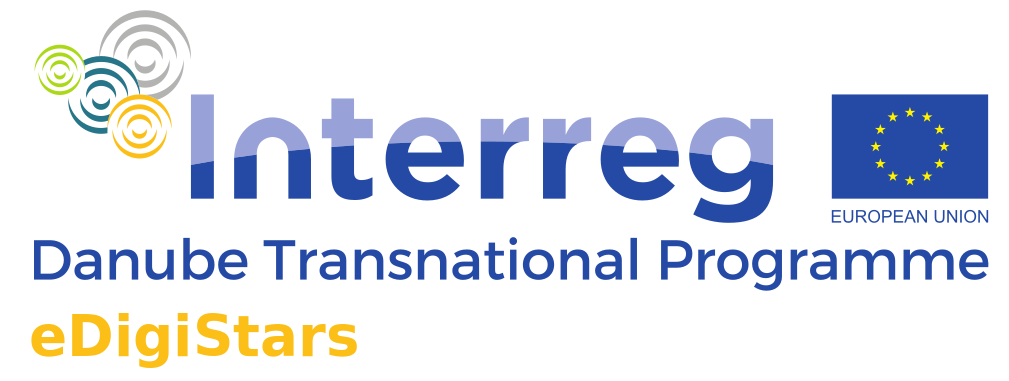The project encompases 19 partners in 8 Danube countries - Austria, Bosnia and Herzegovina, Bulgaria, Czech Republic, Hungary, Romania, Slovenia, Ukraine. An important part of the project is the development of three tools, which will play a crucial role in the process.
eDigiStars is based on real professional cooperation: vocational training and adult training organisations, labour offices, NGOs, local governments, chambers of commerce, industry and economic development organisations and disadvantaged target groups are working together to ensure success.
The three tools are - POWERYOU will empower the workforce over the age of 50 for digital self-employment, CAMPUS will adjust relevant courses for them to their specific needs, and LABEL will certify those, who demonstrate enough digital skills.
During special meetings and workshops, which took place on virtual meetings, due to corona crises, project partners discussed the creation of the tools, using different methods for interactive group work. The participants have separated in groups in breakout rooms on internet-based platform MIRO.
The second discussion was about the path of developing the CAMPUS tool, targeting providers of education and requalification courses. The tool will guide them on how to efficiently and effectively adapt their courses to the specific needs of the target group. CAMPUS will be tested at one course per territory during the project lifetime.
Project partners participated in the workshop, discussing specific aspects of how people of the age 50+ process the information and some effective training strategies.
Decline in sensations, attention, memory and interpretation of the elderly - all these issues need suggestions for handing over digital information to the older workforce population. The participants decided to organize CAMPUS in five big chapters: statistics – the actual situation of trainings and courses in the different countries, their content, main topics to be covered, number of hours and general description of the types of information transmitted in a digital skills training.
The development of the tool begins with a review of national and territorial data in the eight participating countries, as well as their analysis. The statistics and the real state of the trainings, as well as the vacancies in the individual countries, a review of the national and territorial data, the content of courses aimed at digital skills in people дэеи 50, training modules and their combination are described in detail.
The training modules were selected on the basis of research in all countries, the aim is to prepare participants for different positions where digital skills are required. The processing of information in people aged 50+ requires special attention and for this purpose golden rules have been set for adapting the training to their needs.
CAMPUS also defines: sharing students' expectations for positive learning outcomes and a sense of satisfaction, offering hope and optimism, controlling anxiety, challenging misconceptions, using distraction methods (jokes) where appropriate, highlighting benefits from the training - giving practical examples; showing respect and enabling trainees to express their concerns about learning, to be heard; collecting information about the needs and interests of the participants. The developed tool also includes estimated duration for each study topic in hours, description of the individual modules and their content, as well as basic financial, legal skills and practical advice.
The project team is convinced: To support people over 50 to remain active and to ensure that the society of the Danube macro-region benefits from their strengths and talents.


